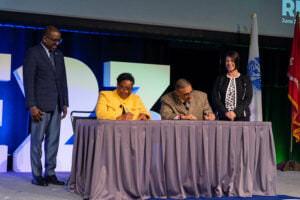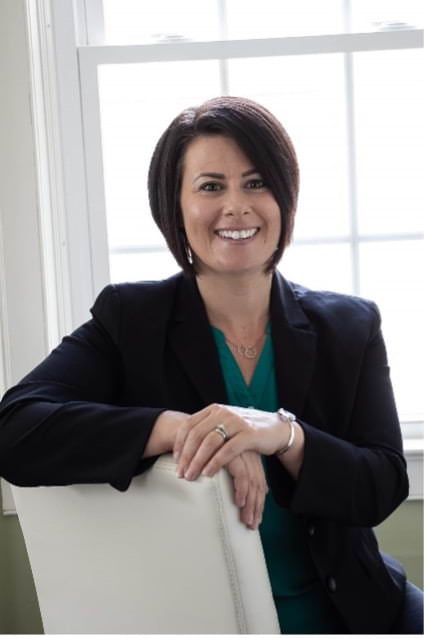We’re Just Getting Started
For as long as there’s been addiction, there’s been recovery. Addiction and the collateral damage left in its wake are more outwardly recognizable; it’s a condition. Recovery, on the other hand, is a process. It’s a journey that ebbs and flows and manifests in both subtle and obvious ways. It’s as unique as the person wanting it, working on it, living it. Cold turkey, white-knuckling it in an anonymous meeting in a church basement; reducing use over time and incorporating safer practices and healthier habits one by one; finding a medication that lends focus and relieves the crushing weight of cravings; quietly, with a trusted treatment provider and handful of supportive friends and family; loudly, with microphones on stages and in advocacy caravans and in the halls of Congress—through an infinite number of other ways and combinations thereof, we recover.
We have more work to do, but one thing is for sure: thanks to advancements in treatment, overdose reversal, and connection with other people with similar experiences, the number of people walking the path of recovery has never been higher, and the recovery community has never been stronger.
My own recovery has taken so many forms over the years, and it continues to evolve as I do. Like too many, my recovery was born out of dire circumstances: justice-involved, desperate not to lose custody of my son. It’s hard enough to be a person with a substance use disorder; it’s an order of another magnitude to face the stigma of being addicted while pregnant or parenting and not knowing how to change.
Recovery (like people) can only flourish given the opportunity. Instead of being incarcerated, I was able to receive addiction treatment and support in the community through a treatment court program. Instead of having my son taken away from me, I was able to maintain custody, start to heal from the harm and shame we experienced, and chart a new course as a family. I was able to finish college and then graduate school. I was able to establish a secure, professional career in the treatment and recovery field. Eventually, I was also able to have my criminal record expunged.
I wish I could say my path was easy, but it wasn’t. And I wish I could say outcomes like mine are more common, but they aren’t. Far too many achieve recovery only to hit barrier after barrier to basic societal needs such as education, employment, housing, and more. It creates a vicious cycle that can make even the strongest among us feel helpless, and helplessness too often creates a sense of hopelessness. But when we reduce these barriers, the transformation can be profound and complete, and then we get to see what really lies beneath the surface: that people in recovery are a wellspring of intelligence, talent, and service that benefit our communities in profound ways. They are leaders with so much to offer.
Reducing barriers for people in recovery is a win-win for individuals, their communities, and local economies. We need more landlords, loan officers, and college admission boards who will give people with a history of addiction and justice involvement a chance. We need recovery-friendly workplaces that recognize providing a flexible, supportive work environment will produce healthy employees, increase retention and productivity, and lower unemployment and poverty.
Minimizing barriers also has a ripple effect of benefits. Families can be healthier, closer, and more financially stable, improving the odds of success for generations to come. Children grow up understanding the harms of addiction and stigma, the value of recovery, and—most importantly—the value of people in recovery. Young people in recovery themselves or who have been impacted by a loved one’s recovery are helping to platform this life-or-death issue in their schools, workplaces, and legislatures, and they’re refusing to take no for an answer.
I’ve devoted my life to reducing barriers for people seeking and living in recovery, whatever it looks like and whatever path they’ve chosen to get there. I’m proud to be the first treatment court graduate to serve on the board of directors for All Rise, an organization dedicated to addressing substance use and mental health in the justice system. I’m proud to be one of the founding members of the National Treatment Court Alumni Association, already making historic connections and progress for people who’ve found recovery through these programs. And I’m especially proud of the work we’re doing in Maine, from where I work at the Caring Community Collaborative to our local recovery support centers to Washington County’s brand-new Recovery Friendly Workplace Network.
No matter where you live or what journey you’re on, even if you’ve never struggled with addiction, we need you. Join people in recovery already changing the world, because we’re just getting started.

Carolyn Hardin, Chief of Training and Research at All Rise, left center, signs a memorandum of understanding between All Rise and the National Treatment Court Alumni Association with NTCAA Chair Carlos Gonzales, right center, as Terrence Walton, All Rise COO, left, and Abby Frutchey, NTCAA vice chair and All Rise board member, right, look on at RISE23 in June 2023 in Houston, Texas.

Abby Frutchey
L.M.S.W., L.A.D.C., C.C.S.
Abby Frutchey, L.M.S.W., L.A.D.C., C.C.S., is a 2006 graduate of the Washington County Adult Drug Treatment Court in Maine. She is the Substance Use Response Coordinator for Community Caring Collaborative and has 12 years of experience practicing as a licensed substance use treatment provider and clinical supervisor, specializing in treatment of those involved in the criminal justice system. Mrs. Frutchey has worked with the Washington County Adult Drug Treatment Court in Maine since 2012 as both a treatment provider and clinical supervisor. In 2020, she became the first treatment court graduate to join the All Rise Board of Directors. She is the vice chair of the National Treatment Court Alumni Association, working to increase efforts to support treatment court alumni across the country. She holds a bachelor’s degree in human services management and a master’s degree in social work. Mrs. Frutchey resides in Maine with her husband, Brian, who is a 2009 treatment court graduate, and their three children.
